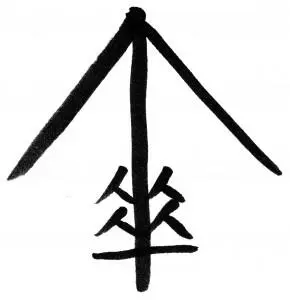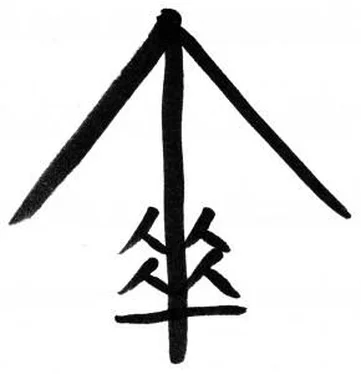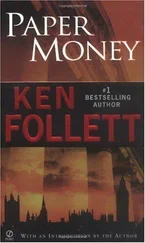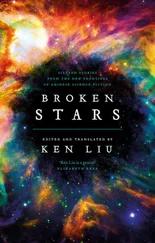Ken Liu - Mono No Aware
Здесь есть возможность читать онлайн «Ken Liu - Mono No Aware» весь текст электронной книги совершенно бесплатно (целиком полную версию без сокращений). В некоторых случаях можно слушать аудио, скачать через торрент в формате fb2 и присутствует краткое содержание. Жанр: Старинная литература, на английском языке. Описание произведения, (предисловие) а так же отзывы посетителей доступны на портале библиотеки ЛибКат.
- Название:Mono No Aware
- Автор:
- Жанр:
- Год:неизвестен
- ISBN:нет данных
- Рейтинг книги:3 / 5. Голосов: 1
-
Избранное:Добавить в избранное
- Отзывы:
-
Ваша оценка:
- 60
- 1
- 2
- 3
- 4
- 5
Mono No Aware: краткое содержание, описание и аннотация
Предлагаем к чтению аннотацию, описание, краткое содержание или предисловие (зависит от того, что написал сам автор книги «Mono No Aware»). Если вы не нашли необходимую информацию о книге — напишите в комментариях, мы постараемся отыскать её.
Mono No Aware — читать онлайн бесплатно полную книгу (весь текст) целиком
Ниже представлен текст книги, разбитый по страницам. Система сохранения места последней прочитанной страницы, позволяет с удобством читать онлайн бесплатно книгу «Mono No Aware», без необходимости каждый раз заново искать на чём Вы остановились. Поставьте закладку, и сможете в любой момент перейти на страницу, на которой закончили чтение.
Интервал:
Закладка:
The world is shaped like the kanji for umbrella , only written so poorly, like my handwriting, that all the parts are out of proportion.

My father would be greatly ashamed at the childish way I still form my characters. Indeed, I can barely write many of them anymore. My formal schooling back in Japan ceased when I was only eight.
Yet for present purposes, this badly drawn character will do.
The canopy up there is the solar sail. Even that distorted kanji can only give you a hint of its vast size. A hundred times thinner than rice paper, the spinning disc fans out a thousand kilometers into space like a giant kite intent on catching every passing photon. It literally blocks out the sky.
Beneath it dangles a long cable of carbon nanotubes a hundred kilometers long: strong, light, and flexible. At the end of the cable hangs the heart of the Hopeful , the habitat module, a five-hundred-meter-tall cylinder into which all the 1,021 inhabitants of the world are packed.
The light from the sun pushes against the sail, propelling us on an ever widening, ever accelerating, spiraling orbit away from it. The acceleration pins all of us against the decks, gives everything weight.
Our trajectory takes us toward a star called 61 Virginis. You can’t see it now because it is behind the canopy of the solar sail. The Hopeful will get there in about three hundred years, more or less. With luck, my great-great-great—I calculated how many “greats” I needed once, but I don’t remember now—grandchildren will see it.
There are no windows in the habitat module, no casual view of the stars streaming past. Most people don’t care, having grown bored of seeing the stars long ago. But I like looking through the cameras mounted on the bottom of the ship so that I can gaze at this view of the receding, reddish glow of our sun, our past.
***
“Hiroto,” Dad said as he shook me awake. “Pack up your things. It’s time.”
My small suitcase was ready. I just had to put my Go set into it. Dad gave this to me when I was five, and the times we played were my favorite hours of the day.
The sun had not yet risen when Mom and Dad and I made our way outside. All the neighbors were standing outside their houses with their bags as well, and we greeted each other politely under the summer stars. As usual, I looked for the Hammer. It was easy. Ever since I could remember, the asteroid had been the brightest thing in the sky except for the moon, and every year it grew brighter.
A truck with loudspeakers mounted on top drove slowly down the middle of the street.
“Attention, citizens of Kurume! Please make your way in an orderly fashion to the bus stop. There will be plenty of buses to take you to the train station, where you can board the train for Kagoshima. Do not drive. You must leave the roads open for the evacuation buses and official vehicles!”
Every family walked slowly down the sidewalk.
“Mrs. Maeda,” Dad said to our neighbor. “Why don’t I carry your luggage for you?”
“I’m very grateful,” the old woman said.
After ten minutes of walking, Mrs. Maeda stopped and leaned against a lamppost.
“It’s just a little longer, Granny,” I said. She nodded but was too out of breath to speak. I tried to cheer her. “Are you looking forward to seeing your grandson in Kagoshima? I miss Michi too. You will be able to sit with him and rest on the spaceships. They say there will be enough seats for everyone.”
Mom smiled at me approvingly.
“How fortunate we are to be here,” Dad said. He gestured at the orderly rows of people moving toward the bus stop, at the young men in clean shirts and shoes looking solemn, the middle-aged women helping their elderly parents, the clean, empty streets, and the quietness—despite the crowd, no one spoke above a whisper. The very air seemed to shimmer with the dense connections between all the people—families, neighbors, friends, colleagues—as invisible and strong as threads of silk.
I had seen on TV what was happening in other places around the world: looters screaming, dancing through the streets, soldiers and policemen shooting into the air and sometimes into crowds, burning buildings, teetering piles of dead bodies, generals shouting before frenzied crowds, vowing vengeance for ancient grievances even as the world was ending.
“Hiroto, I want you to remember this,” Dad said. He looked around, overcome by emotion. “It is in the face of disasters that we show our strength as a people. Understand that we are not defined by our individual loneliness, but by the web of relationships in which we’re enmeshed. A person must rise above his selfish needs so that all of us can live in harmony. The individual is small and powerless, but bound tightly together, as a whole, the Japanese nation is invincible.”
***
“Mr. Shimizu,” eight-year-old Bobby says, “I don’t like this game.”
The school is located in the very center of the cylindrical habitat module, where it can have the benefit of the most shielding from radiation. In front of the classroom hangs a large American flag to which the children say their pledge every morning. To the sides of the American flag are two rows of smaller flags belonging to other nations with survivors on the Hopeful . At the very end of the left side is a child’s rendition of the Hinomaru , the corners of the white paper now curled and the once bright red rising sun faded to the orange of sunset. I drew it the day I came aboard the Hopeful .
I pull up a chair next to the table where Bobby and his friend Eric are sitting. “Why don’t you like it?”
Between the two boys is a nineteen-by-nineteen grid of straight lines. A handful of black and white stones have been placed on the intersections.
Once every two weeks, I have the day off from my regular duties monitoring the status of the solar sail and come here to teach the children a little bit about Japan. I feel silly doing it sometimes. How can I be their teacher when I have only a boy’s hazy memories of Japan?
But there is no other choice. All the non-American technicians like me feel it is our duty to participate in the cultural-enrichment program at the school and pass on what we can.
“All the stones look the same,” Bobby says, “and they don’t move. They’re boring.”
“What game do you like?” I ask.
“ Asteroid Defender !” Eric says. “Now that is a good game. You get to save the world.”
“I mean a game you do not play on the computer.”
Bobby shrugs. “Chess, I guess. I like the queen. She’s powerful and different from everyone else. She’s a hero.”
“Chess is a game of skirmishes,” I say. “The perspective of Go is bigger. It encompasses entire battles.”
“There are no heroes in Go,” Bobby says, stubbornly.
I don’t know how to answer him.
***
There was no place to stay in Kagoshima, so everyone slept outside along the road to the spaceport. On the horizon we could see the great silver escape ships gleaming in the sun.
Dad had explained to me that fragments that had broken off of the Hammer were headed for Mars and the Moon, so the ships would have to take us further, into deep space, to be safe.
“I would like a window seat,” I said, imagining the stars streaming by.
“You should yield the window seat to those younger than you,” Dad said. “Remember, we must all make sacrifices to live together.”
We piled our suitcases into walls and draped sheets over them to form shelters from the wind and the sun. Every day inspectors from the government came by to distribute supplies and to make sure everything was all right.
Читать дальшеИнтервал:
Закладка:
Похожие книги на «Mono No Aware»
Представляем Вашему вниманию похожие книги на «Mono No Aware» списком для выбора. Мы отобрали схожую по названию и смыслу литературу в надежде предоставить читателям больше вариантов отыскать новые, интересные, ещё непрочитанные произведения.
Обсуждение, отзывы о книге «Mono No Aware» и просто собственные мнения читателей. Оставьте ваши комментарии, напишите, что Вы думаете о произведении, его смысле или главных героях. Укажите что конкретно понравилось, а что нет, и почему Вы так считаете.












